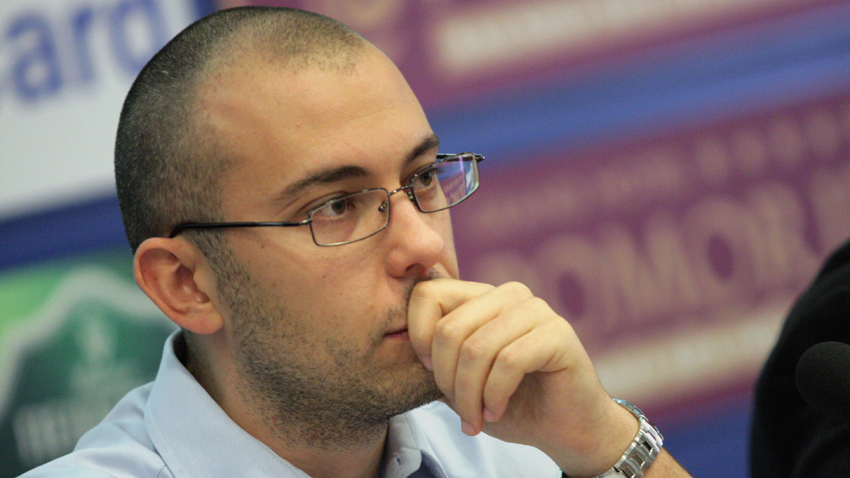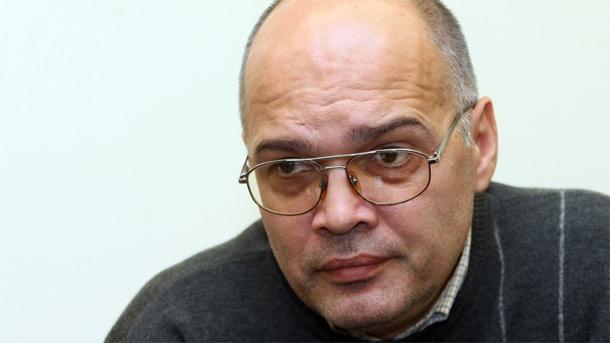It is something of a tradition for fuel prices to be in the limelight of attention every summer; this summer is no exception after the drop in prices on the international markets in July made no mark on the retail market. The long-awaited downward trend only emerged at the end of August, as a result of a joint televised interview by Prime Minister Boyko Borissov and Customs Agency head Vanyo Tanov. The Prime Minister promised more sweeping inspections of dealers. The market which had remained unaffected by the earlier price fluctuations reacted to the political message conveyed and one liter of fuel at petrol dispensers dropped by the modest 10 stotinki or so, or a mere 4.5 percent.
This is no doubt good news, but is it really? It is, after all, a fact that calls into question the market price formation of fuels in Bulgaria as well as transparency in the sector, and last but not least – the expertise of the supervisory authorities – the Commission for Protection of Competition and the tax administration.
 “This is not a decision it is an act of populism,” Kaloyan Staykov from the Institute for Market Economics comments. “Someone or other comes up and says: “There is a cartel, prices are too high.” But why is that so? Where are the objective data? There is an anti-monopoly commission, there is a tax administration that could ascertain what is going on. It is absurd to be skipping inspections and going directly to conclusions. It turns out that the tax administration wants to put pressure on importers, manufacturers and dealers so they will reduce prices instead of just doing their job.”
“This is not a decision it is an act of populism,” Kaloyan Staykov from the Institute for Market Economics comments. “Someone or other comes up and says: “There is a cartel, prices are too high.” But why is that so? Where are the objective data? There is an anti-monopoly commission, there is a tax administration that could ascertain what is going on. It is absurd to be skipping inspections and going directly to conclusions. It turns out that the tax administration wants to put pressure on importers, manufacturers and dealers so they will reduce prices instead of just doing their job.”
According to the European Energy Portal, the average price of one liter of fuel (diesel and petrol) within the EU, without excise duty or VAT, imported or produced, stands at EUR 0.552; in Bulgaria the price is EUR. 0.617. This means the country has the fourth most expensive net fuel price in the EU, after Denmark, Malta and Italy. In 2014 around 45 percent of the petrol and 35 percent of the diesel on the country’s market was imported, though it cannot be said for sure whether these fuels go to meet the needs of the domestic market or whether some of them are re-exported. The difference up to 100 percent is made up for by local refineries, the biggest among them being Lukoil. On its part, Lukoil exports around 50 percent of its produce.
 European Energy Portal data indicate further that Bulgaria is the country with the lowest excise duty in the EU. Adding to this the third price component, VAT the country will actually take seventh place in terms of fuel prices, though from the bottom up, among all 28 EU members. Whether there may be a cartel at some level however is difficult to prove. Three years ago the Commission for Protection of Competition came out with the conclusion there existed a cartel on the fuel market in the country, yet this allegation was rejected in court. Tihomir Bezlov from the Centre for the Study of Democracy is adamant: “There is talk of a secret cartel agreement in the sector but this is difficult to prove.”
European Energy Portal data indicate further that Bulgaria is the country with the lowest excise duty in the EU. Adding to this the third price component, VAT the country will actually take seventh place in terms of fuel prices, though from the bottom up, among all 28 EU members. Whether there may be a cartel at some level however is difficult to prove. Three years ago the Commission for Protection of Competition came out with the conclusion there existed a cartel on the fuel market in the country, yet this allegation was rejected in court. Tihomir Bezlov from the Centre for the Study of Democracy is adamant: “There is talk of a secret cartel agreement in the sector but this is difficult to prove.”
Kaloyan Staykov says the conflict is elsewhere:
“The problem of all control authorities is that they are not independent. They cannot do their job because of the political pressure on them. Years ago the Commission for Protection of Competition came up with feeble arguments and on the whole, proved nothing. Now there are politicians saying “We have a cartel” so why isn’t the commission, which is the authority that should ascertain how things stand taking any steps? The institutions capable of proving the existence of a cartel and of taking steps to reduce the negative effect are doing nothing. It is the politicians that are saying it, and that is in practice, a PR exercise.”
Quality of fuels, control and market assessment are the three cardinal problems connected with the price of fuels that the country has proved incapable of coping with, says Tihomor Bezlov. They have proved elusive because there is an insufficient number of qualified staff in the administration capable of coping with the more and more complex systems and facilities. Kaloyan Staykov recommends that the fuel sector get a clear picture of the situation; for the purpose it should organize an inspection by the Public Financial Inspection Agency, similar to the inspection conducted in power generation.
English version: Milena Daynova
“The main priorities businesses have – membership of the Eurozone and accession to the Schengen area by land – have receded to the background. They are the motors which can boost the economy, but the fact there is no regular government is an obstacle..
Bulgargaz has reported record interest in its tender for the supply of LNG to the Alexandroupolis terminal for January and February 2025. All nineteen bidders met the criteria set by the company and have been approved to participate in the next..
The Russian state oil company Lukoil has plans to sell its Bulgarian refinery Neftochim based in Burgas on the Black Sea Coast. It is the largest in the Balkans, writes the Financial Times . The deal is expected to be announced by the end of..

+359 2 9336 661
